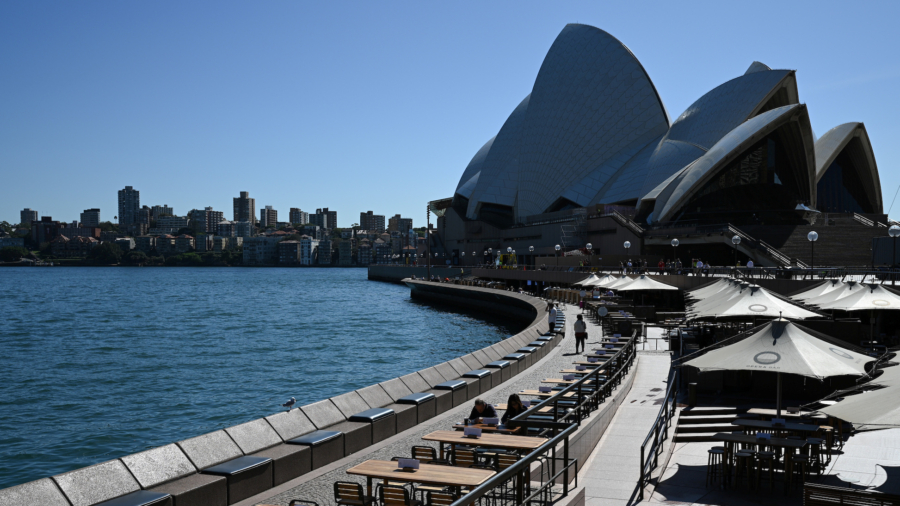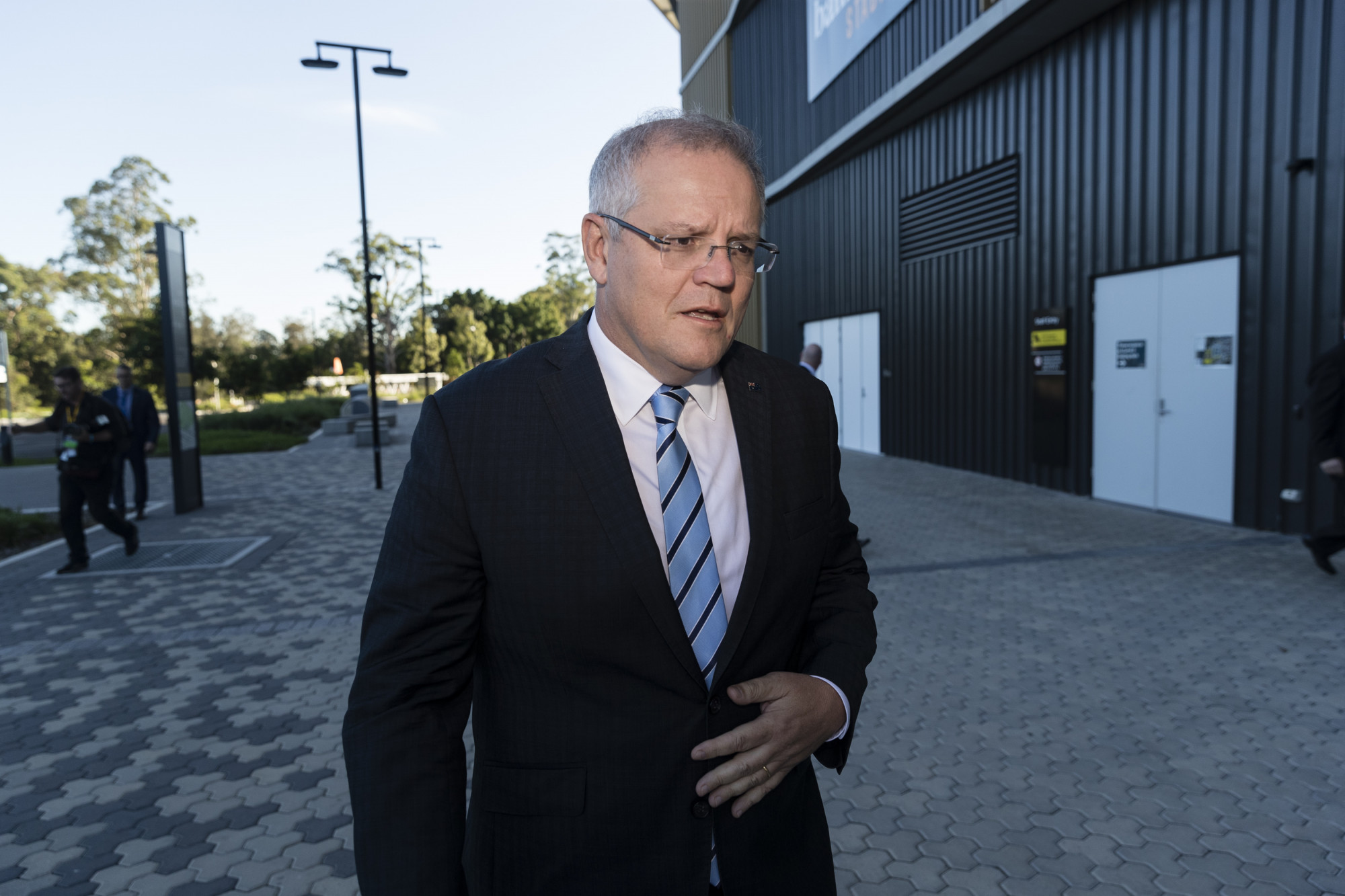Coronavirus cases in NSW have jumped to almost 270 while a fifth person in the state and sixth nationwide has died of the illness.
Health authorities on Wednesday also admitted the number of COVID-19 cases in NSW with no known source of transmission was increasing.
NSW Health on Wednesday afternoon confirmed an 86-year-old man previously confirmed to have COVID-19 died on Tuesday night in a Sydney hospital.
NSW chief health officer Kerry Chant earlier said there were 267 confirmed coronavirus cases in the state, up from 210 on Tuesday. More than 25,000 tests have been conducted.
Chant attributes the rise to an influx of Australians returning from overseas as citizens around the world return to their home countries.
“What we’ve been seeing is increasing cases in returning travellers from Europe and also America adding to those previous countries we’ve had—the original ones,” Chant told reporters in Sydney. “The outbreak has changed and evolved.”
NSW schools will remain open but there’ll be no assemblies and strict bans on sick students and teachers. Regular hand washing will be enforced.
Premier Gladys Berejiklian this week announced a $2.3 billion economic package including $700 million for health care and $1.6 billion for job creation and tax relief. Berejiklian on Wednesday reiterated her confidence NSW would pull through the crisis.
“When we stick together, all the states and the national government working hand in hand, with good people advising us on a daily basis … good, sound decisions will be made,” the NSW Liberal leader told reporters.
Universities are suspending face-to-face classes, businesses are urging staff to avoid the office and a string of major events have been cancelled in an attempt to keep the coronavirus in check.
The University of Technology Sydney has said 27 students and one teacher are in self-isolation after a confirmed coronavirus case on campus.
Macquarie University has also suspended classes after a student was infected while the University of Sydney will deliver all classes online from March 23.
Residents flouting a ban on mass gatherings can be fined $11,000 or jailed for up to six months while NSW Police is halting major roadside drug and alcohol testing operations due to hygiene concerns.
Police Deputy Commissioner Gary Worboys on Wednesday said officers would continue to conduct mobile random breath testing and there’d be an increased police presence around shopping centres and hospitals.
NSW Opposition leader Jodi McKay wants more COVID-19 testing with fast-tracked results.
The Labor leader said anyone showing symptoms – not solely those returning from overseas or in contact with confirmed cases – should be tested.
“In South Korea they’re testing 15,000 people a day … and they’re getting the tests the next day,” McKay told reporters on Wednesday.
“Here we know of people who are waiting up to a week to get their test results. These test results must be given immediately and everyone who seeks a COVID-19 test must be given one.”
Music festival Splendour in the Grass has been postponed until October while Groovin the Moo was cancelled outright.
Australia on Wednesday upgraded its international travel advice to the highest level with citizens told not to travel overseas—the first ever ban like this for the country.
“We are upgrading the travel ban on Australians to level four for the entire world. That is the first time that has ever happened in Australia’s history,” Prime Minister Scott Morrison said at a news conference Wednesday morning. “The travel advice to every Australian is ‘Do not travel abroad.’ Do not go overseas. That is very clear, that instruction.”
“Regardless of your destination, age or health, our advice is ‘do not travel‘ at this time,” the advice on the Smart Traveller website says. “As more countries close their borders or introduce travel restrictions, overseas travel is becoming more complex and difficult.”
Morrison noted that the ban is indefinite and that other countries appear to be putting up similar travel restrictions.
Morrison also announced that non-essential indoor gatherings will be limited to 100 people, effective immediately on Wednesday. Previously over the weekend, the government announced that non-essential outdoor gatherings will be limited to 500 people.
Essential gatherings, as they pertain to the outdoors, include airports, public transportation and its facilities such as stations, platforms, stops, trains, trams, buses.
There are now 452 cases of coronavirus, which causes a disease called COVID-19, in Australia and 5 deaths, according to data from John Hopkins University. Twenty-three people have recovered.
Information for Australians
The prime minister has activated the Emergency Response Plan for Novel Coronavirus (COVID-19).
To find out how the Australian Government is managing COVID-19, go to Government response to the outbreak.
If you’re planning to go overseas, keep up to date with the latest advice for travellers.
Advice for Slowing Coronavirus Spread
- Practice social distancing—keep a space of 1.5 metres between you and other people
- Stop shaking hands
- Stop hugging, except for family members
- Practice good hand hygiene, washing frequently with soap for 20 seconds, including before and after eating and after going to the toilet
- Sit in the back seat of taxis or car-share rides such as Uber
- Cover coughs and sneezes with a tissue or your elbow, and throw out tissues
- Use alcohol-based hand sanitisers
- Clean and disinfect surfaces, door handles and frequently used objects such as mobiles, keys, and wallets
- Stay home if you are unwell
- Avoid large public gatherings if they’re not essential (gatherings of more than 500 people outdoors and 100 people indoors are now banned)
- Minimise physical contact, especially with people at higher risk such as older people and people with existing health conditions
- Keep children away from grandparents and other at-risk people
- There is no need to wear a surgical mask if you are well
- Keep sending children to school but make sure they understand the importance of regular hand-washing
Epoch Times staff contributed to this report.


